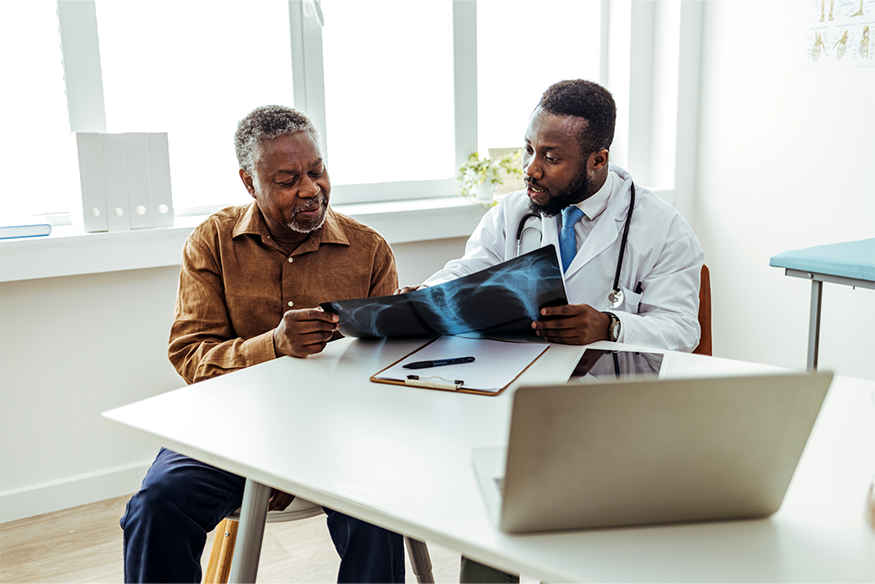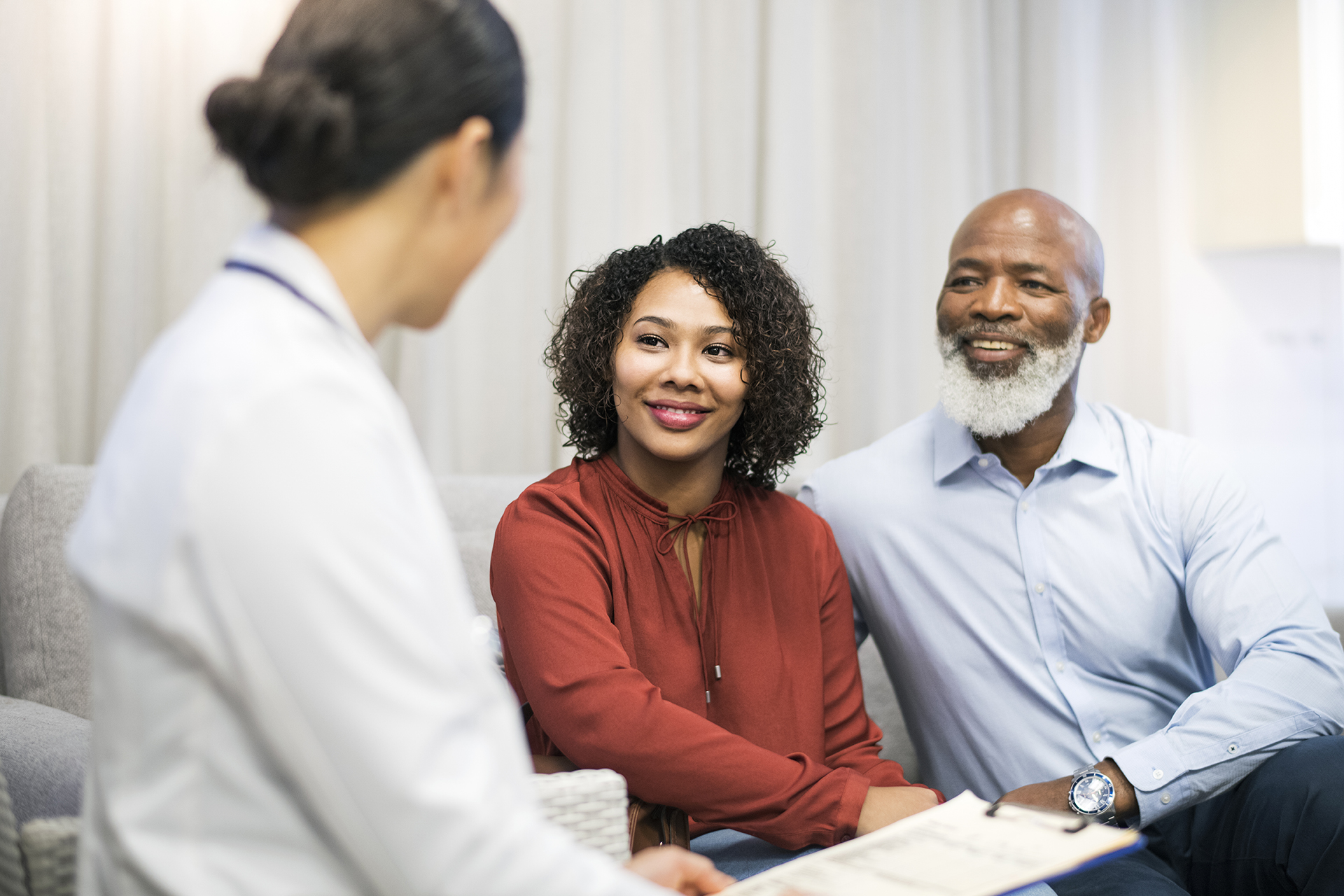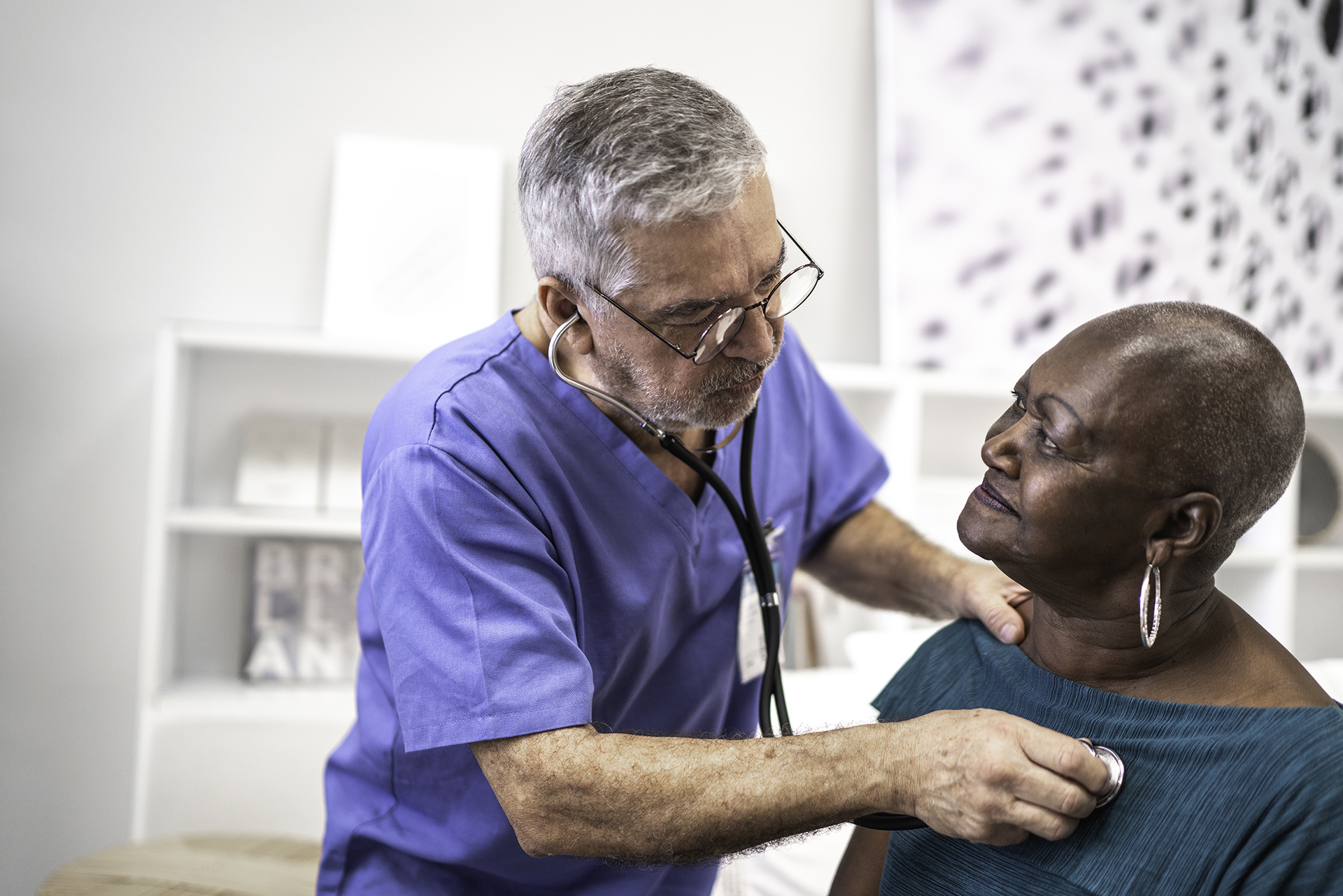Clinical, Research, Prevention & Control, Center News & Funding
Apr 17, 2024

Through a collaborative, grant-funded partnership between three cancer centers along the East Coast, a community-driven initiative is underway to increase access to lung cancer screenings, chip away at existing health disparities and set a nationwide precedent for moving toward lung health equity for all individuals.
In 2022, VCU Massey Comprehensive Cancer Center, the Medical University of South Carolina (MUSC) Hollings Cancer Center and University of North Carolina Lineberger Comprehensive Cancer Center secured a four-year, $3 million grant from Stand Up To Cancer® (SU2C). This grant established the SU2C Lung Cancer Health Equity Research Program, utilizing the stout community outreach and engagement reputations of the three institutions to develop culturally-sensitive, community-informed interventions with a shared objective of curbing lung cancer mortality among historically underserved communities.
Black Americans are disproportionately impacted by social drivers of health, which can increase their likelihood to smoke and limit their access to lung cancer screening and care. This grant is actively addressing those deeply ingrained disparities that contribute to a higher incidence of lung cancer in Black communities across Virginia and the Carolinas, which lie in the heart of America’s tobacco-producing region and are among the states with the highest concentration of Black residents.
“Over the years, menthol has been disproportionately marketed to Black communities, increasing the incidence of smoking, decreasing cessation and making it harder for them to quit,” said team leader Robert A. Winn, M.D., director and Lipman Chair in Oncology at Massey and senior associate dean for cancer innovation at the VCU School of Medicine. “This has led to Black men — whose cancers are diagnosed at a later stage and outcomes are worse compared to other racial and ethnic groups — having the highest rates of lung cancer in the United States. The SU2C Lung Cancer Health Equity Research Program will not allow these inequities to continue.”
Over the last two years, the cancer centers have worked together to build alliances with communities and cultivate infrastructure that will ensure access to lung cancer early detection for all.
“It is our expectation that, by developing an evidence-based model for increasing access to screening in our communities, it will be adopted in other regions as well with the ultimate goal of reducing mortality,” said Patrick Nana-Sinkam, M.D., team co-leader, pulmonologist and the Linda Grandis Blatt Endowed Chair in Cancer Research at Massey. “Addressing the complexities of narrowing the gaps in lung cancer early detection can only be successful through such a team effort.”
As part of this project, each of the three institutions partners with their local federally-qualified health centers (FQHCs) – community clinics that receive special funding from the federal government to provide primary care in underserved areas.
Community navigators within the FQHCs and nurse and financial navigators within the cancer centers guide patients through lung cancer screening by providing education and support. These teams of navigators aim to remove the variety of barriers that underserved patients face.
This grant laid the groundwork for the creation of a multi-module screening navigation training program that is now available as a resource for navigation sites across the U.S.
“We are proud of this training product, which incorporates elements of cultural humility in the provision of navigation services to guide high-risk patients to lung cancer screening,” said Marvella Ford, Ph.D., team co-leader and associate director of population science and community outreach and engagement at MUSC Hollings Cancer Center.
This initiative coincides with a recent announcement from the Biden-Harris Administration that the Center for Medicare and Medicaid Services would begin covering the cost of certain navigation services, including additional benefits for cancer patients, effective Jan. 1, 2024.
“The community work we are doing through the SU2C collaboration now plays a very important role as the initial step in the process of navigating patients to lung cancer screening, with a handoff to cancer center navigators, if abnormal screening results are found, to guide them through diagnosis and treatment,” Ford said. “This grant has readily positioned the three participating sites to take part in this paradigm-shifting practice of cancer care delivery.”
Additionally, the three cancer centers are jointly pooling together one of the largest repositories in the country of clinical data and patient samples of Black Americans at risk for or diagnosed with lung cancer. The goal is to use this biobank to inform future research and clinical care, as well as guide the development of a non-invasive genetic risk score that can help to better understand the populations who are truly at risk for lung cancer.
“We have made tremendous progress, and in the next several months, we anticipate completing enrollment and conducting our first pilot project to test a genetic risk score among high-risk Black males,” Nana-Sinkam said.
John D. Carpten, Ph.D., chairperson of the SU2C Health Equity Committee as well as chief scientific officer and cancer center director at City of Hope, applauded this team science approach to closing the gap on health inequity.
“Institutional partnerships that are formed by grant-funded projects like this offer a real blueprint for how cancer centers, local health clinics and communities can band together to make a significant impact in reducing cancer disparities,” Carpten said.
This grant was made possible by the support of Bristol Myers Squibb and is a part of SU2C’s Health Equity Initiative, which was announced in 2020 and focuses on increasing diversity in cancer clinical trials, initiating advocacy group collaborations and awareness campaigns, and funding research aimed at improving cancer outcomes and screening rates in medically underserved communities.
In alignment with this initiative, SU2C also recently recognized Katherine Y. Tossas, Ph.D., M.S., director of Catchment Area Data Analytics at Massey, with the organization’s Health Equity Award, given to an exceptional early-stage investigator for a groundbreaking research idea with the potential to significantly transform the field of cancer health equity.
“This prestigious award underscores my and Massey’s commitment to pioneering innovations that drive substantial advancements in cancer health equity research,” Tossas said.
Written by: Blake Belden
Center News & Funding, Community Engagement & Health Equity, Massey 50
Massey Carnival celebrates community, NCI Comprehensive designationMay 15, 2024
Research, Center News & Funding
Kaustubh Datta studies prostate cancer disparities to make a difference in people’s livesMay 13, 2024
Center News & Funding, Massey 50, Clinical
Celebrating 50 years of Massey: From nurse practitioner to patientMay 06, 2024

Treatments in clinical trials may be more effective or have fewer side effects than the treatments that are currently available. With more than 200 studies for multiple types of cancers and cancer prevention, Massey supports a wide array of clinical trials.

Massey supports hundreds of top cancer specialists serving the needs of our patients. Massey’s medical team provides a wealth of expertise in cancer diagnosis, treatment, prevention and symptom management.